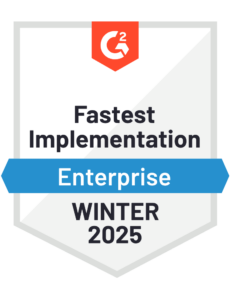Overcome Email Challenges with Finance Task Management Software
Blog post
Share
The use of technology has come a long way, especially after the setbacks organizations experienced with COVID-19. Many organizations have recognized the shortcomings of many of the tools that their departments use on a regular basis and invested more in tools that promote productivity.
However, one tool that requires adjustments in the way it is used is email. Email is extremely valuable for communication (especially if working remotely) but organizations have started to realize that an over-reliance on the tool can impact the productivity levels of their staff.
But how does overuse of email for communication negatively impact organizations, especially the Office of Finance, and what can be done about it?
How Does Email Decrease Productivity?
In 2019, Slack released a study that interviewed 17,000 knowledge workers about their workplace communication methods. 19% of the respondents identified as “hyper-connectors”, meaning that they received 51 to over 100 emails per day.
These hyper-connectors were more likely to struggle with workplace challenges like:
- Finding the necessary information to perform their duties
- Gaining access and visibility into other teams’ work (48% of moderate email users and 43% of minimal email users felt the same)
- Meeting performance goals
- Effectively using technology to boost productivity
These findings suggest that the purpose email was meant to serve — supporting communication and therefore, increasing productivity — are actually having an adverse effect; there is an overreliance on email that hinders the success and productivity of team members.
Why Finance Teams Struggle to Complete the Close with Email
The Slack study was taken in 2019, when 70% of the global workforce worked remotely one day per week. Imagine how these numbers have jumped after COVID-19 forced a majority of organizations to work remotely every day. Even though many organizations have found a hybrid balance of working in-office and remotely, there is still an overdependence on email as a communication tool, especially for finance workers.
For most finance and accounting teams, email is the primary mode of communication. Team members and leadership use it to keep everyone apprised of account changes, status updates and more. However, the major shift to remote work for the majority of organizations in the last year has caused an overreliance on email as a workflow tool. Important status updates get buried under the misuse of the “reply all” function and accountants find themselves sorting through their inbox, wasting time and energy that could be spent on month-end close activities. Email should not be the reason accountants work late nights and weekends, or why close deadlines are missed.
Instead of using email as a primary means of communication, the Office of Finance should look to new tools and technologies.
Benefits of Finance Task Management Software
Implementing a task management software not only equips finance teams to better execute the close in order to meet deadlines while keeping the reporting accurate but also promotes team collaboration, especially if integrated with productivity tools such as Slack or Microsoft Teams®. A finance task management tool like Adra Task Manager will also send notifications about a completed task through these third-party communication tools and has real-time dashboards that leadership can view to see the status of their month-end close progress.
Even though accountants may not be within a shout of one another’s desk, or able to quickly drop by and ask a question, those don’t have to be hindrances for a team working remotely anymore. The right tools — which means relegating email to a supporting (rather than primary) mode of communication — will allow accountants to better utilize their already-limited time on tasks related to the close.
Explore how a finance task management software like Adra Task Manager can increase the productivity of the finance team, whether through communication or workflow improvements.






